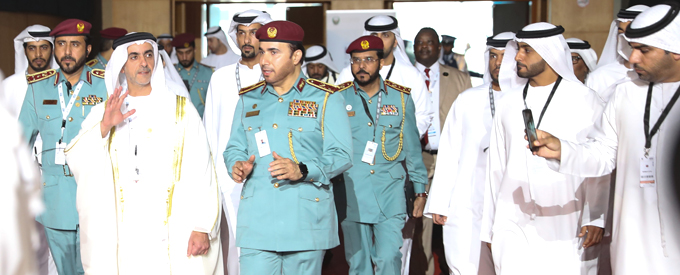2020-02-02
Intel Sharing Key to Counter High Security Threat in Middle East
Experience and expertise play a fundamental role in shaping the international response to global threats, according to the Head of Interpol during a recent meeting of the Arab Chiefs of Police. Speaking at the meeting convened under the Arab Interior Ministers Council (AIMC), Secretary General Jurgen Stock said that today’s security threats, including terrorism, more than ever require regional and global cooperation, as he highlighted the positive examples of information sharing.
Whilst every year, more and more hits against Interpol databases are registered across the globe, nowhere was this increase found as important as in the Middle East and North Africa (MENA) region. Increasingly, the region has seen the number of hits registered at its border points and across its specialised agencies surge by 37 per cent in the last year. In parallel, hits recorded by the rest of the world on data shared by AIMC countries have grown by 52 per cent in the same period.
As the central focal point located between the East and the West, the UAE has, an important responsibility in tackling and mitigating such vulnerabilities and threats.
“Information sharing is at the heart of our work and we strongly believe in its effectiveness,” said Major General Dr. Ahmed Nasser Al Raisi, Inspector General of MOI UAE, and Chairman of ISNR Abu Dhabi 2020 Committee. “The UAE specifically is one of the largest hubs in the world, with great movement in people and goods. So ensuring we are aware of all the necessary information is crucial as it will allow us to have a tight-knit border control, in and out of the country."
Although not always an easy or straight-forward task, security authorities in the UAE constantly monitor their border points to ensure they remain on the highest security alert. Such work requires great effort among all involved organisations, which GCCPOL is largely a part of.
“Border points can be a country's Achilles ‘ heel if not protected appropriately,” said Col. Mubarak Saeed Al Khyeli, The Director General of the GCCPOL. “We live in a region where many threats are on the table and therefore we must work closely with other international agencies, such as Interpol and GCCPOL, to make sure there are no loose ends that need to be tied. The UAE takes its national security and the region's security extremely seriously and this is why it is something we have been and still are working on.” He said that, in the digital and globalised world we live in today, the UAE and other regional countries simply cannot afford to sit back and allow any kind of vulnerabilities to infiltrate and harm their territories.
Underlining the importance of regional security, Stock also welcomed Tunisia’s recent commitment to expand access to I-24/7, Interpol’s secure global police communications system, to all its border points to assist national authorities identify and prevent security risks.
“Streamlining regional efforts with international action means we can close security loopholes as part of our global early warning system and identify potential threats,” Stock stressed: “Collaboration helps ensure that the right police information reaches the right officer at the right time, thereby enhancing our common efforts to protect citizens from the threat of transnational crime and terrorism.”
Interpol has been working closely alongside agencies in the region, through capacity building, coordinated operations and on-the-ground support. This includes deployments to Libya and Iraq last year to assist with the collection of biometric data of terrorist inmates across detention centres as part of Interpol’s Project FIRST.
In addition, through coordinated cross-regional action in the summer of 2018, 12 terrorist suspects attempting to cross maritime borders in the Mediterranean were detected during Operation Neptune II, coordinated by Interpol. Stock also pointed to the growing web of partnerships interlinking Interpol and the region, and between the Arab world and member countries in other regions.
In this respect, Naif Arab University for Security Sciences in Saudi Arabia has committed to hosting future editions of the Interpol Policing Capabilities Programme to train staff from Interpol National Central Bureaus in the region. Naif Arab University is a key partner of Interpol’s cooperation network with academic and research bodies, to the benefit of law enforcement capabilities across the region. With the sponsorship of the UAE, Interpol will also once again hold the Interpol Young Global Police Leaders programme in the region in order to empower the next generation of international police leaders.


No Comments